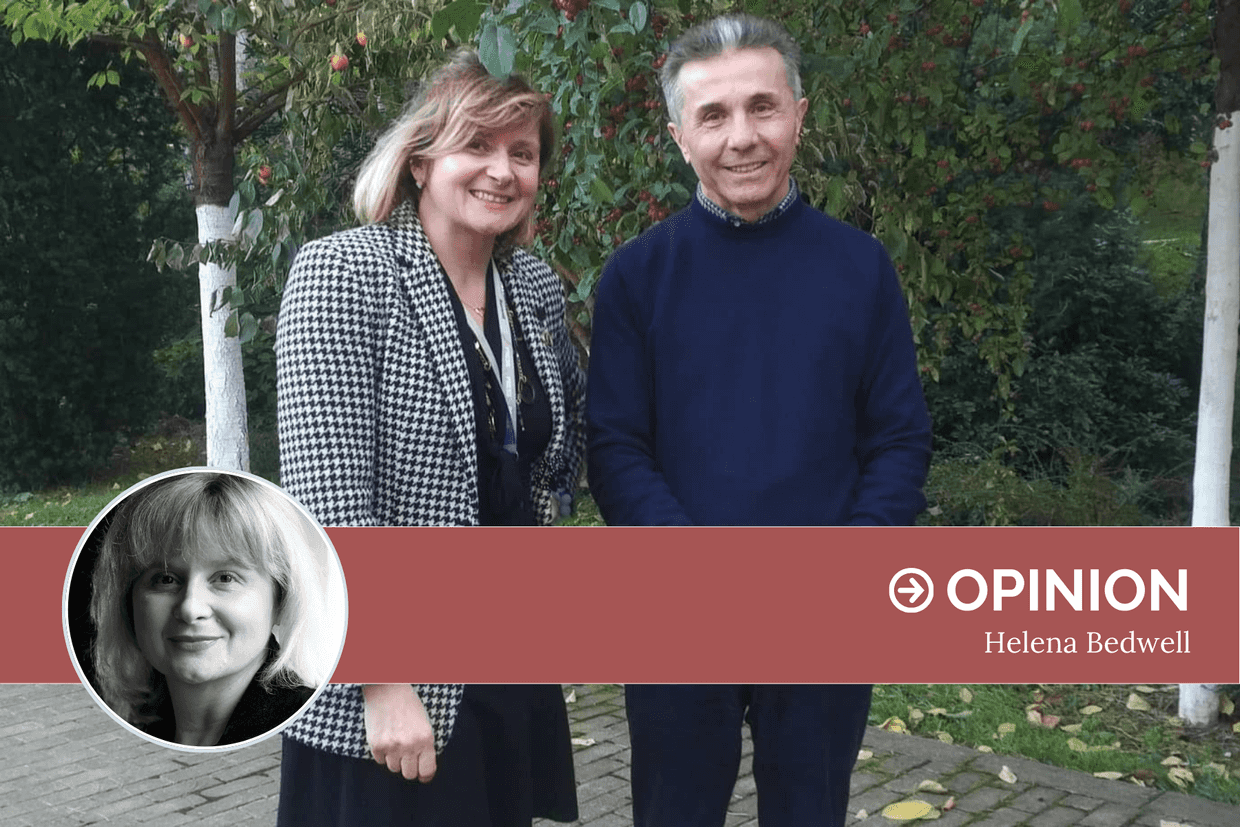
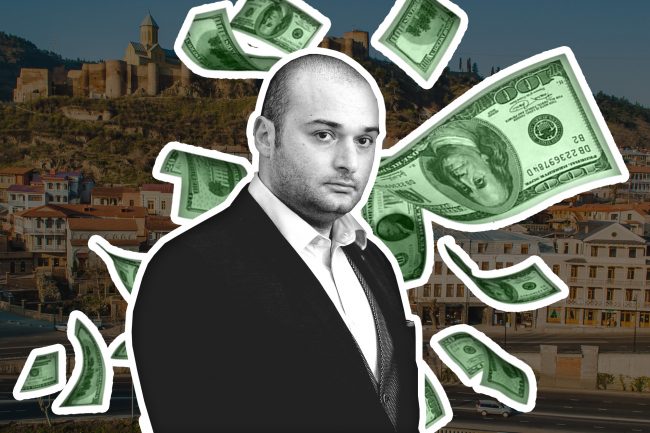
Georgia’s Prime Minister Mamuka Bakhtadze has announced plans to write off ₾1.5 billion ($570 million) in unpaid loans for ‘over 600,000’ people blacklisted by Georgian banks.
At a press conference on Monday, Bakhtadze said the programme would cover the debts of blacklisted people where the initial loan was ₾2,000 ($760) or less, which he claimed covered ‘almost 95%’ of debts on the blacklist.
‘We are talking about the financial liability of over 600,000 citizens to banks, online organisations, and other financial institutions, amounting to ₾1.5 billion.’
‘With today’s decision, this ₾1.5 billion worth of debts will be zeroed for our citizens. This includes almost 150,000 socially vulnerable people and tens of thousands of disabled Georgian citizens.’
According to Bakhtadze, the programme will start on 15 December and conclude by the end of the year.
Bakhtadze hailed the ‘high social responsibility of the banking system, non-banking system, and debt collection agencies’ for agreeing to the proposal after ‘long negotiations’.
Bakhtadze thanked the Cartu Charity Foundation, ‘without which this very big initiative would not have been possible’.
The Cartu Foundation, as well as the bank by the same name, is owned by the family of Georgian Dream party chair Bidzina Ivanishvili.
In recent years, anti-corruption watchdogs like Transparency International — Georgia have been critical of the fact that many former employees of companies associated with Bidzina Ivanishvili have been appointed to all branches of the government.
This has included the head of the State Security Service, Vaghtang Gomelauri, and former prime ministers Irakli Gharibashvili and Giorgi Kvirikashvili.
‘Today’s decision will enable hundreds of thousands of our citizens to fully participate in country’s economic and social life, which will make our economy more sustainable, and our banking and financial sector — healthier’, Bakhtadze told journalists.
Soon after the prime minister’s announcement, Finance Minister Ivane Machavariani followed up with a statement clarifying that the Cartu Foundation would ‘fully buy out’ the debts and that it would not be a burden for taxpayers.
Nine days before the election
The announcement came nine days before Georgians go to the polls for the second round presidential election.
In the first round, Salome Zurabishvili, who has been endorsed by the ruling Georgian Dream party, narrowly defeated the opposition United National Movement’s (UNM) Grigol Vashadze, winning 39% votes to 38%.
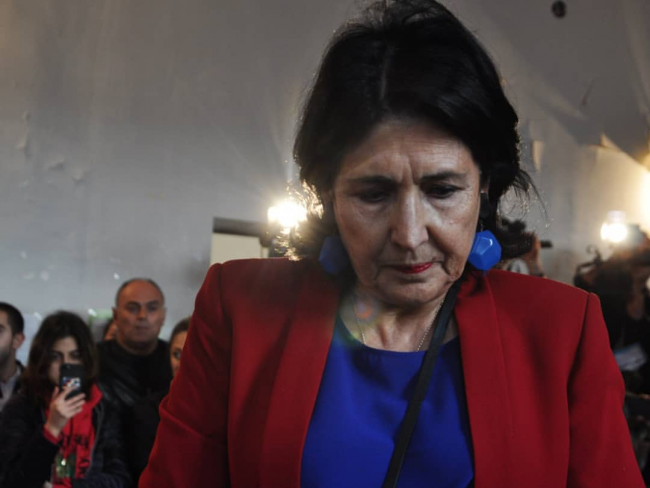
On Sunday, a day before the PM’s announcement, Vashadze demanded the government ‘immediately write off’ the debts of those who were unable to pay and were blacklisted by banks.
In parallel, UNM chairman and the former President Mikheil Saakashvili promised to halve mortgage interest rates and slash Georgians’ debts to micro-finance companies.
Later that day, Georgian Dream General Secretary Kakha Kaladze accused the opposition of stealing a policy they were about to announce, labelling Vashadze’s initiative a ‘clone show’.
Kaladze insisted it was a sign of a ‘panic’ from the UNM after they secretly learned of a ‘massive and principled decision by the government’.
Zurabishvili hailed the initiative, adding that easily available loans available online ‘needed regulating’.
‘Vote buying’
Mikheil Benidze, chair of election watchdog the International Society for Fair Elections and Democracy (ISFED) accused the government of ‘vote buying’.
Benidze told OC Media that this latest announcement went beyond abuse of administrative resources, citing the mass character of the promise, the timing, and the Cartu Foundation’s relation to ruling party chair Bidzina Ivanishvili.
Transparency International — Georgia and the Georgian Young Lawyers’ Association also labelled the initiative ‘vote buying’.
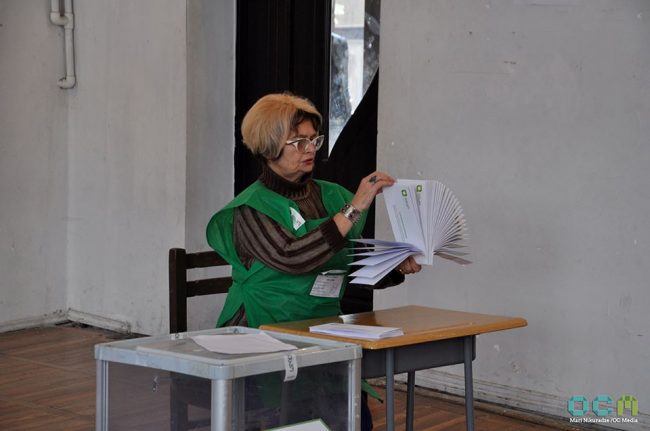
According to Benidze, this initiative was ‘not the first instance’, but added that the opposition was also responsible for ‘populist’ statements during the election period.
‘The government and local authorities have unveiled 11 new social and infrastructural projects between the first and second rounds of the election. The timing indicates they were aimed to garner support of voters’,
‘It is also unfair and discriminatory to those who barely make ends meet and still pay their debts’. Benidze said.
‘These problems should be dealt systematically, not with one-time, short-term initiatives that incentivise citizens to take loans with the hope of the government or some other party covering their debts again. It is also uclear what kind of negotiations the government led with businesses and how voluntary their participation was’.
Georgian Dream leaders indicated on Monday that they had failed to reach an agreement with Vivus, one of the largest microfinance organisations in Georgia, but that talks would continue.
Besik Shengelia, Chair of the Georgian Microfinance Association, told online outlet Business Media Georgia that the government held no such consultations with them.
According to him, the authorities held meetings with several banks and big microfinance organisations on Saturday to discuss the idea.
Sergi Kapanadze, leader of the opposition European Georgia Party, also accused the government of ‘buying votes’. He said he expected Ivanishvili to gain back the money from Georgia in other ways.
Kapanadze also expressed concern that the government’s initiative would encourage people to take loans irresponsibly.
Presidential candidate Grigol Vashadze called the announcement a ‘desperate stunt motivated by fear of losing’ the run-off election. He claimed that Georgian banks themselves write off bad debts annually.
Living in poverty
During his press conference, Bakhtadze insisted that without addressing excessive indebtedness, fighting poverty and problems facing Georgian children would yield no results. He cited a United Nations Children’s Fund (UNICEF) study ‘suggesting a causal relation’ between the two.
UNICEF’s Welfare Monitoring Survey (WMS) released in July said that ‘an estimated 4.3% of all households, or 5.0% of the population, 6.8% of children and 3.7% of pensioners, live below the extreme poverty line’.
The study also found that every fifth child in Georgia lived in a household where their basic needs were not met.
According to official statistics, 21% of Georgians lived below poverty line in 2016, living on below ₾83 ($31) a month.
[Read more about UNICEF report on OC Media: Georgian street children are ‘used as shields’ in crimes]
Bakhtadze claimed he had talked about the problem already while finance minister, and reminded the public that Ivanishvili also addressed the issue after his return to politics.
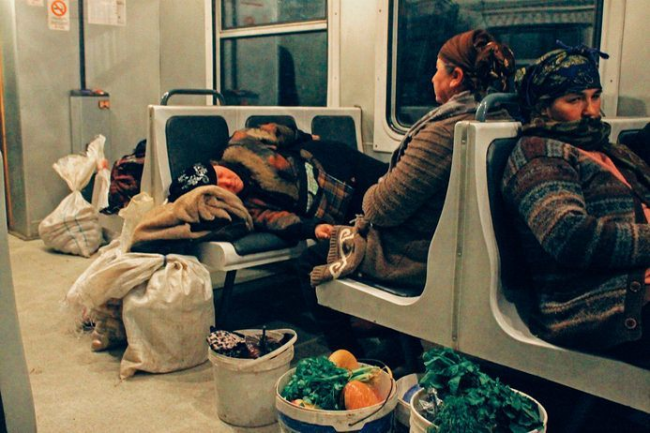
Soon after his comeback to formal politics in July, Ivanishvili accused recently departed Prime Minister Giorgi Kvirikashvili of lobbying for the banks. He said that Georgia’s two largest banks, Bank of Georgia and TBC were ‘eating up the whole country’.
According to the International Monetary Fund (IMF), in 2015, 68% of adults in Georgia had active loans, and 30% of these borrowers had already been blacklisted.
Ivanishvili said in summer that the UNICEF and IMF reports made him realise how many Georgians still lived in poverty and named it among the reasons for his return to politics.
Since then, the Georgian Dream chairman has insisted that given the levels of poverty and unemployment, the economy lagged behind democracy in Georgia.
‘Individuals and society should have not only freedoms of expression and other democratic values I could mention, but also the ability to realise them’.
In April, the National Bank of Georgia introduced restrictions on banks handing out loans regardless of a potential borrower’s ability to meet their debt obligations.
The government under Bakhtadze later initiated further legal amendments limiting the terms of mortgage and consumer loans.



